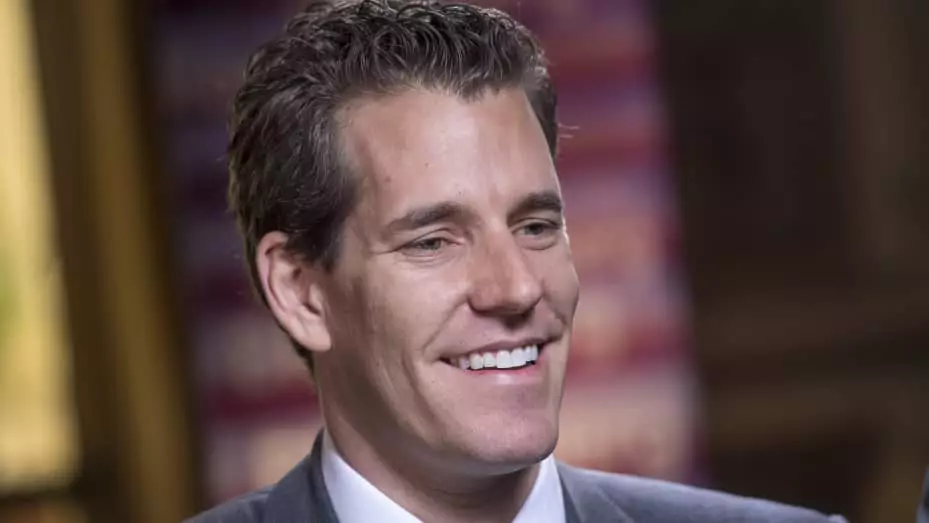The rapidly evolving landscape of the cryptocurrency industry is once again in the spotlight, particularly due to actions taken by prominent figures such as Tyler Winklevoss, co-founder of the Gemini crypto exchange, and Brian Armstrong, CEO of Coinbase. Their recent stance reveals not only a growing frustration with regulatory practices but also a call for accountability among former officials of the U.S. Securities and Exchange Commission (SEC). As a reaction to what they perceive to be an assault on the cryptocurrency sector, these leaders are adopting significant measures aimed at distancing themselves and their firms from legal associations perceived as complicit in regulatory overreach.
The posturing of Winklevoss and Armstrong reflects a deteriorating trust between the crypto community and regulatory authorities. The SEC, long seen as the gatekeeper of market integrity, has been criticized for its tactics which many argue stifle innovation within the burgeoning digital asset world. Armstrong was particularly vocal about this sentiment when he denounced law firms employing former SEC officials who have a history of advocating against cryptocurrencies. His comments prompted a ripple effect, leading Winklevoss to echo his sentiments in a similar declaration.
This movement is largely fueled by discontent with the SEC’s approach to regulation. The notion that regulations are being wielded as weapons against legitimate crypto business interests has created a contentious atmosphere. Through their statements, both Winklevoss and Armstrong signal a desire for a purging of the status quo, calling for transparency and ethical standards in legal and regulatory processes.
Central to this discourse is the recent fallout between Coinbase and Milbank, a global law firm that hired former SEC Director of Enforcement Gurbir Grewal. His exit from the SEC coincided with a decisive moment in a high-profile legal battle against Ripple, leading to questions about the motivations behind his departure. This incident serves as a bellwether for growing concerns within the crypto community — could it suggest a deeper rift within the SEC?
The actions taken by Coinbase in cutting ties with Milbank resonate with those within the crypto ecosystem who are increasingly demanding integrity from regulatory entities. They argue that allowing former SEC officials, linked to anti-crypto stances, to reap benefits in the private sector undermines efforts to cultivate a fair and supportive environment for innovation. Winklevoss’s desire for a “running list” of implicated SEC officials demonstrates a proactive approach to establishing accountability and providing transparency regarding regulatory influences.
As the debate intensifies, the underlying theme of accountability gains traction within both the entrepreneurial and legal spheres of the cryptocurrency industry. Armstrong has made it clear that while he doesn’t support a total “cancel culture,” there should be consequences for those whose actions negatively impacted innovation and security in the crypto markets. This sentiment reflects a broader notion that the industry must protect itself from individuals who once wielded power in regulatory roles but now seek profit within the sector they once sought to master.
Moreover, the narrative is further complicated by figures like Tron founder Justin Sun, who expressed his willingness to employ former SEC Chair Gary Gensler should he prove sincere in his dealings with the crypto space. This juxtaposition raises intriguing questions about the nature of redemption and the potential for a reconciliatory approach to a fractured relationship between the SEC and the digital asset community.
The actions taken by Winklevoss and Armstrong may signal the dawn of a new era in the cryptocurrency sector marked by a ruthless pursuit of accountability. As the regulatory landscape continues to evolve, much will depend on how players within the industry respond to these calls for greater ethical standards and transparency. Whether this will lead to a united front against perceived regulatory overreach or further divide the cryptocurrency community remains to be seen.
Ultimately, the stakes are high. As these leaders endeavor to promote ethical conduct within their respective firms and the broader industry, they might very well shape the future of cryptocurrency regulations. This may fuel a renewed focus on fostering an environment conducive to innovation while holding regulators accountable for their actions—an essential balance for a sector that thrives on trust and transparency.
















Leave a Reply